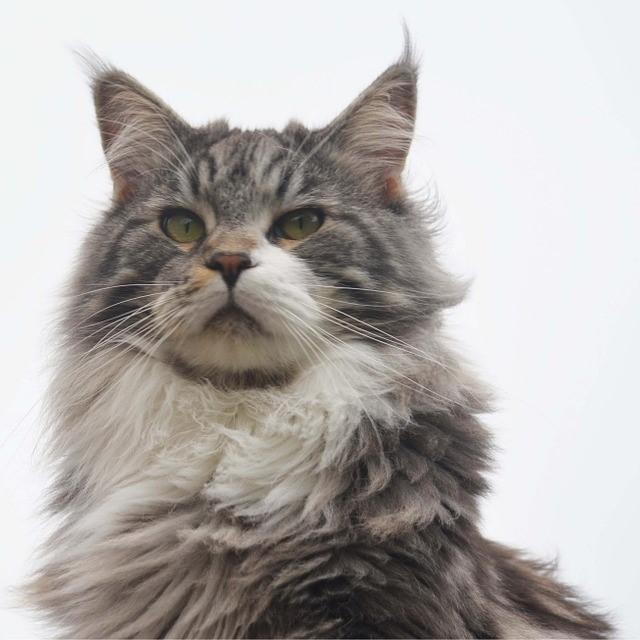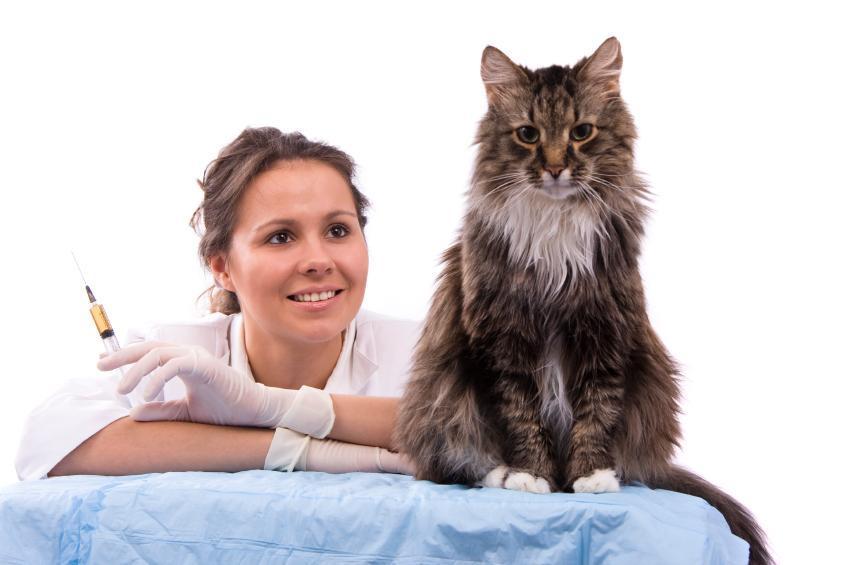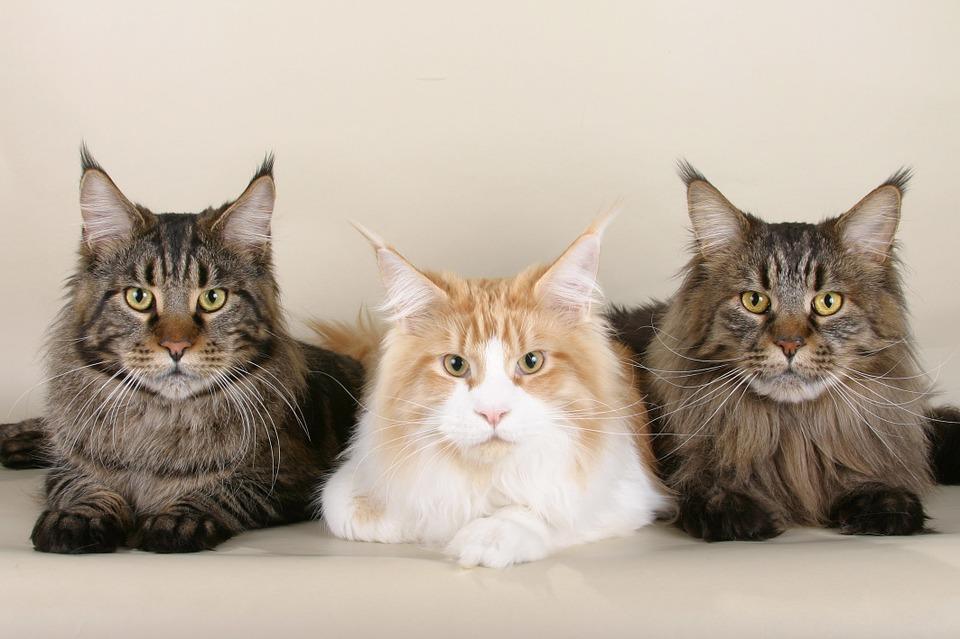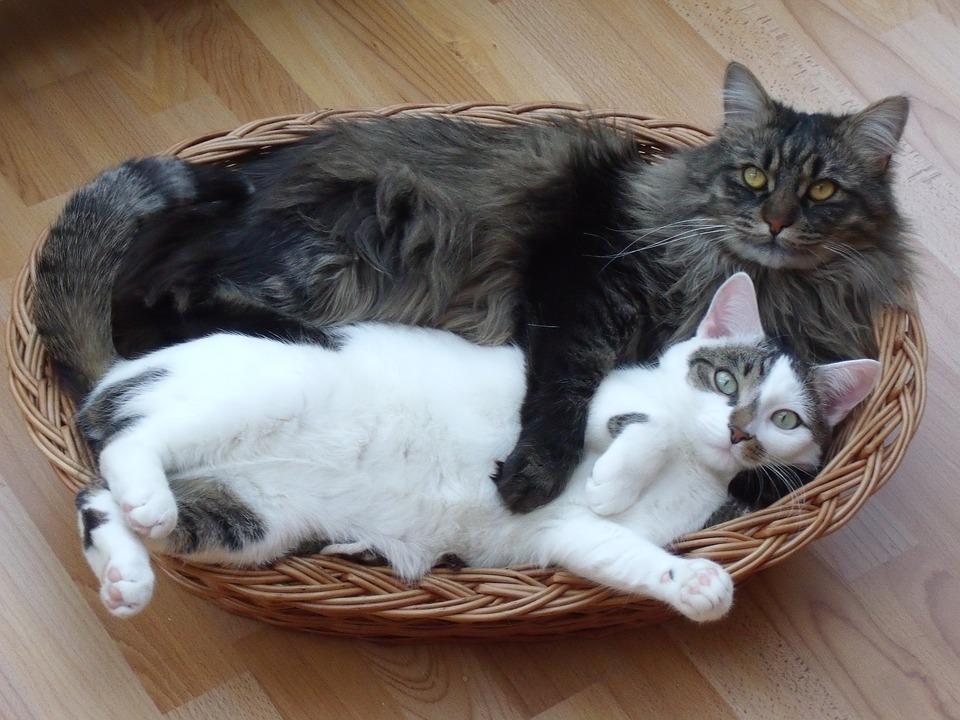Caring for a Maine Coon Cat



See files for Cats
The Maine Coon cat is one of the largest domestic cats, with adult males weighing between 6 to 11 kg (13 to 24.5 lb). However, there have been cases of Maine Coon cats who have reached 20 kg (44 lb). This cat breed comes from the state of Maine, in the US. However, there are various theories about its origins.
One of the theories about origins of the Maine Coon breed says that when the Vikings carried out their raids on the American continent they took cats with them to catch the rats in their stylized ships. Maine Coon cats would descend from big, long-haired Nordic cats who bred with American wildcats. Another theory is that European Angora cats were crossed over with native short-haired cats after the 16th Century.
No matter their origin, Maine Coon cats are beautiful, loving felines, and they make for splendid pets. If you're thinking about adopting this extraordinary cat, here at AnimalWised we'll go over the basics of caring for a Maine Coon cat. Read on!
How often should you take a Maine Coon cat to the vet?
The most important step towards caring for a Maine Coon cat is taking them to the vet regularly; if no problems arise and you don't notice any symptoms of disease, taking your Maine Coon cat to the vet a couple of times a year will be enough.
The vet will be the person who will diagnose the state of health of your Maine Coon and administer the necessary vaccines. They will also be the ones responsible for neutering your cat. However, ultimately you're the one who must keep the vaccination schedule up to date and ensure the cat follows a proper diet. Here you can discover the symptoms of nutritional deficiencies in cats.

Caring for a Maine Coon cat's coat
Thankfully, the Maine Coon cat's fur is usually healthy and beautiful. However, if you want to preserve that quality you will have to work and help your pet flaunt that wonderful fur they're known for.
In order to care for a Maine Coon cat's coat it is very important to brush it three times a week with a specific brush for long-haired cats. If you do it for five minutes every day, all the better. Brushing your Maine Coon regularly will prevent gastric problems, as by removing dead hair you keep your cat from ingesting it while preening, which would cause dangerous hairballs.
We recommend giving your Maine Coon malt for cats, which alleviates the accumulation of hairballs, and foods rich in omega-3, with benefits that will be positively felt in the fur.
Bathing a Maine Coon cat
An unusual quality of this cat breed is that it loves water, and you will not have any problem to bathe it as long as the water is at a suitable temperature, from 36º C to 38º C (95º F to 100º F). In the United States it is not unusual to see Maine Coons bathing in the pool with their human family during the summer, as they are good swimmers.
However, although Maine Coon cats enjoy getting wet we do not recommend bathing them with cat shampoo more than once every month and a half. Another matter is that the cat enjoys cooling off during the summer and gets wet at every opportunity.

Feeding a Maine Coon cat
This subject is quite tricky, as Maine Coon cats eat a lot but are quite lazy. Therefore, this is a breed quite prone to obesity, especially if owners impose no limits to their food intake. You should feed your Maine Coon cat balanced, high-quality dry feed. Check the food labels and avoid those brands that are excessively fatty.
Maine Coon cats grow slowly; they take four years to reach their maximum recommended weight, which in males can reach 11 kg (24.5 lb). If your cat exceeds this weight, you should take them to the vet as soon as possible, as their health may be jeopardized in a serious way.
Living with a Maine Coon cat
This breed has the peculiarity that it is independent and family-oriented at the same time. Maine Coon cats like to play about and be the centre of attention, and they enjoy having some level of commotion around them, but they do not like being touched in excess.
Maine Coon cats usually get along very well with other pets. This large breed can live in an apartment as it is not too active. However, it would be ideal for them have a small garden to enjoy some occasional hunting adventures, and maybe capture a mouse or two.

These are our tips on caring for a Maine Coon cat. What are yours? Have you ever lived with a Maine Coon? Tell us in the comments section!
If you want to read similar articles to Caring for a Maine Coon Cat, we recommend you visit our Basic care category.


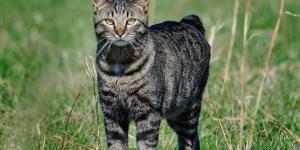
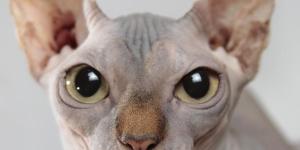
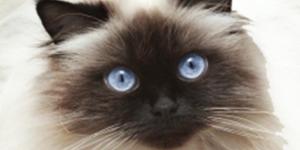

 This was at 4 mos. He rescued us on Memorial Day. He was 3wks when he came home. He was HAlf starved. Drank a lot of water, went straight to the litter boxes, did his duty then came back to eat more. He looks kinda like a Maine Coon. Our vet said oh no he’s at normal size, when he came to us he weighed 4lbs. Now weighs almost 13lbs, 5s? Very long bodied, big feet, uses his back legs/feet to jump. This boy is growing so fast for a normal cat. I have 2 other cats, I have had a cat my whole life! What do you think? He is so loving and sometimes he looks at gets excited and jumps on me with his very fluffy tail. He has grown into it. Willie wants to go out when I go but he is strictly indoors! Lots of coyotes and eagles. We live on a river. Help please
This was at 4 mos. He rescued us on Memorial Day. He was 3wks when he came home. He was HAlf starved. Drank a lot of water, went straight to the litter boxes, did his duty then came back to eat more. He looks kinda like a Maine Coon. Our vet said oh no he’s at normal size, when he came to us he weighed 4lbs. Now weighs almost 13lbs, 5s? Very long bodied, big feet, uses his back legs/feet to jump. This boy is growing so fast for a normal cat. I have 2 other cats, I have had a cat my whole life! What do you think? He is so loving and sometimes he looks at gets excited and jumps on me with his very fluffy tail. He has grown into it. Willie wants to go out when I go but he is strictly indoors! Lots of coyotes and eagles. We live on a river. Help please

